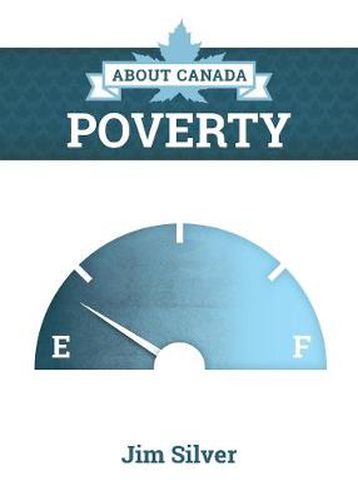Readings Newsletter
Become a Readings Member to make your shopping experience even easier.
Sign in or sign up for free!
You’re not far away from qualifying for FREE standard shipping within Australia
You’ve qualified for FREE standard shipping within Australia
The cart is loading…






For a country as wealthy as Canada, poverty is utterly unnecessary. In About Canada: Poverty, Jim Silver illustrates that poverty is about more than a shortage of money: it is complex and multifaceted and can profoundly damage the human spirit. At the centre of this analysis are Canada’s neoliberal economic policies, which have created conditions that make a growing number of people vulnerable to low income, vanishing public services and poor physical health. Silver also highlights the ways in which poverty is intimately connected to colonialism and racial and gender discrimination, and finds that the political and economic policies enacted by the Canadian government serve only a powerful minority, while producing a range of negative outcomes for the rest of us, especially the poor. Silver points out that the costs of poverty - relating to health care, crime, education and unemployment - are higher than the costs of solving poverty, and he lays out an achievable strategy for its dramatic reduction in Canada. When poverty is understood as resulting from political choices, its elimination requires putting pressure on governments to ensure that different choices are made.
$9.00 standard shipping within Australia
FREE standard shipping within Australia for orders over $100.00
Express & International shipping calculated at checkout
For a country as wealthy as Canada, poverty is utterly unnecessary. In About Canada: Poverty, Jim Silver illustrates that poverty is about more than a shortage of money: it is complex and multifaceted and can profoundly damage the human spirit. At the centre of this analysis are Canada’s neoliberal economic policies, which have created conditions that make a growing number of people vulnerable to low income, vanishing public services and poor physical health. Silver also highlights the ways in which poverty is intimately connected to colonialism and racial and gender discrimination, and finds that the political and economic policies enacted by the Canadian government serve only a powerful minority, while producing a range of negative outcomes for the rest of us, especially the poor. Silver points out that the costs of poverty - relating to health care, crime, education and unemployment - are higher than the costs of solving poverty, and he lays out an achievable strategy for its dramatic reduction in Canada. When poverty is understood as resulting from political choices, its elimination requires putting pressure on governments to ensure that different choices are made.